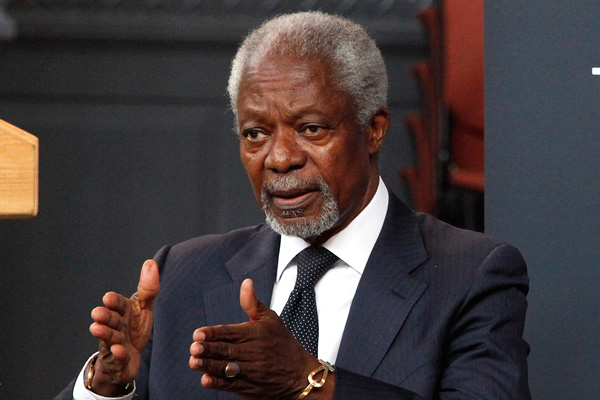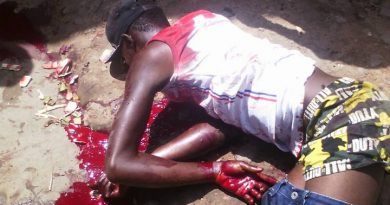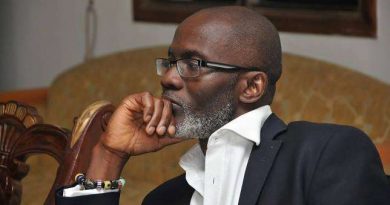ICC Not Witch-Hunting African leaders – Annan
Veteran diplomat Kofi Annan has thrown his weight behind the International Criminal Court, arguing it is erroneous to assume it was mainly established to prosecute African leaders.
There is a general perception that the international court is witch-hunting African leaders while Western ones have been left off the hook. The International Criminal Court is an intergovernmental organization and international tribunal that sits in The Hague in the Netherlands. The ICC has the jurisdiction to prosecute individuals for the international crimes of genocide, crimes against humanity, and war crimes.
Over the years, the Court has received over 9000 complaints about alleged crimes from 139 countries; however, it has indicted 36 Africans in eight countries.

However, the former UN secretary general said he still believes in upholding the ICC.
“I remind the Africans that it’s wrong for them to say that only African leaders are put into the dock,” Annan told the Financial Times. He added that Slobodan Milosevic and others convicted of war crimes in the former Yugoslavia had been tried in The Hague before the ICC was established.
According to him, African leaders “shouldn’t pretend that they were the first” or that the process is biased.
“The (Kenyan) president and vice-president were the ones in the dock and so they put lots of effort and resources into fighting the case,” the Ghanaian explained.
He was of the conviction that ordinary Africans wanted their leaders held to account, adding “they want justice if they can get it from their own courts and, if not, an international court.”
On Tuesday, Jean-Pierre Bemba, the former vice-president of the Democratic Republic of the Congo, was sentenced to 18 years in prison for rape and pillage committed by his troops, becoming the highest-level official to be sentenced at the ICC.
Current high-profile ICC trials include that of Laurent Gbagbo, the former president of Ivory Coast, who denies charges that he orchestrated “unspeakable violence” in an attempt to hold on to power after losing an election in 2010, and that of Ahmad al-Faqi al-Mahdi, who is accused of razing medieval shrines, tombs and a 15th-century mosque that formed part of the Unesco world heritage site in Timbuktu, Mali, when the city was seized by Islamic militants in 2012.




